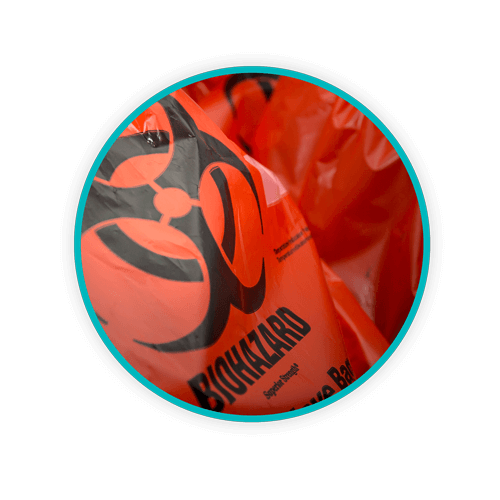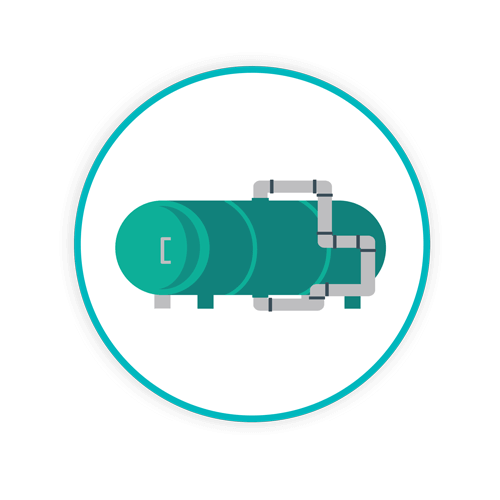Guide to West Virginia Medical Waste Regulations

The state of West Virginia, barely 250 miles long and roughly 130 miles across, is home to nearly two million residents. In addition to a rich history dating back to the pre-colonial era, today’s West Virginia is home to major hospitals and cancer institutes, research centers, and a large health system comprised of over a dozen hospitals as well as the Heart and vascular Institute, the Rockefeller Neuroscience Institute, and the VWU Critical Care and Trauma Institute.
Each one of these facilities – not to mention urgent care centers, private physicians’ offices, dental providers and veterinary services – generate medical waste. In this state, medical waste is typically defined as “infectious waste” and even though the definitions are slightly different than other states, they refer to a number of waste categories or waste streams.
Contact a local medical waste expert in West Virginia today
TOPICS IN THIS BLOG:
2 / Who makes the rules in WV?
6 / How Daniels Health can support
Pay attention to definitions
The U.S. must follow federal regulations when it comes to healthcare waste management. The same applies to every state, although their definitions and terminology may differ slightly. All medical waste generators in West Virginia need to be aware that not only state guidelines, but federal guidelines must be followed in order to ensure compliance and to reduce the risk of fines and penalties for improper medical waste disposal.
West Virginia defines infectious medical waste as sharps waste, pathological waste, blood and blood products, body parts, and extends to cultures and stocks of biologicals and microorganisms, and in some cases, even bedding and personal protective equipment worn by either the healthcare professional or a patient.
In the state, all medical waste generators must have infectious medical waste management plan. This plan includes how medical waste is stored, treated, and disposed of. Facilities that generate or produce more than 50 pounds of medical waste on a monthly basis must follow guidelines by the state for its management. More on that in just a bit.
Who makes the rules in West Virginia?
As mentioned, all states are required to follow federal regulations such as those of the Environmental Protection Agency (EPA), which contains specific information regarding medical waste handling, storage, packaging, transportation, and disposal of medical waste found under the Code of Federal Regulations Title 40. The EPA provides in-depth information regarding regulations, enforcement, compliance, and guidance on their website which can be accessed here.
In West Virginia, refer to West Virginia’s Department of Health and Human Resources for additional information, including their Infectious Medical Waste Program guidelines. These guidelines provide information, applications and forms, incineration information, and more on their expectations when it comes to medical waste management and disposal.
Their website provides number of documents that will prove valuable to any medical waste generator and includes:
- Fact sheet on infectious medical waste
- Small quantity generators guide to IMW (infectious medical waste) requirements
- Approved infectious waste hauling companies in West Virginia
Some facilities are equipped to incinerate, autoclave, or otherwise treat infectious waste on-site, but others are required to contract with independent medical waste companies for disposal. Due to the limitations of space in West Virginia, such waste may be transported through the state and into other states for ultimate disposal.
Regulation of biohazardous waste in the state is the responsibility of the West Virginia Department of Health and Human Resources through their Bureau for Public Health Office of Environmental Health Services. Facilities that generate more than 50 pounds of medical waste per month are required to submit their infectious medical waste plan for review as well as approval through the West Virginia Department of Health and Human Resources Secretary.
But wait, there’s more (there’s always more).
West Virginia’s governing laws and regulations should always be reviewed, especially when it comes to major environmental laws. Take the time to review West Virginia’s Solid Waste Management Act, WV Code 22-15-1 to 22-158-29. This entire chapter is devoted to environmental resources and includes Article 15 (Solid Waste Management Act).
Be aware West Virginia follows guidelines of the federal government in regard to the recycling of hazardous wastes. Again, definitions matter. In West Virginia, the term “recycling” also implies the processing and reclamation of wastes. Last but not least, refer to West Virginia’s Division of Air Quality and review their Water and Waste Programs to ensure compliance when it comes to medical waste disposal.
Infectious medical waste disposal

As mentioned, this state deems all medical waste as infectious medical waste. Every employee in any facility that provides medical services to patients or clients should be able to identify waste streams and also follow applicable guidelines for their collection, handling, and storage.
In West Virginia, as in other states, infectious waste must be rendered non-infectious before disposal. Incineration is the primary method. So too is autoclaving or steam treatment. A number of alternative methods are also applicable in West Virginia, such as the use of chemicals or microwaving, depending on situation.
Refer to the West Virginia Infectious Medical Waste Rule (64CSR56) for more detailed information. For example, section 10.2.a specifies that “all owners and operators of infectious medical waste incinerators are required to comply with applicable state laws and with rules of the West Virginia air pollution control commission.” Section 11.2 specifies that “a commercial infectious medical waste management facility, one that receives more than 35% of their total waste from off-site, can not utilize incineration technology in any form.”
Hospital facilities within West Virginia should review the hospital/medical/infectious waste incinerator’s rule (45-CSR-24: Summary of the performance standard). Hospital facilities engaged in infectious medical waste disposal must also comply with federal EPA regulations.
About autoclaves

In West Virginia, autoclave or steam treatment of infectious medical waste must also follow specific guidelines prior to such medical waste being disposed of in a sanitary landfill. Acceptable autoclave settings range from 250° for 90 minutes to 272° for 45 minutes. Prior to autoclaving, the facility must provide adequate documentation that any autoclave units are able to achieve reliable destruction of microorganisms, along with documentation and adequate compliance of procedures, along with accurate record-keeping.
Additional requirements apply to any infectious medical waste treated in an autoclave. For example, infectious medical waste intended for treatment in an autoclave must be collected at its point of origin in orange biohazard-labeled bags.
Following treatment, the non-infectious waste is then to be shredded so small that the remains can pass through a ½-inch screen and are no longer rendered recognizable. Such waste does not need to be labeled when sent to the landfill.
Treatment of waste that is not shredded requires that each container have a compliant and descriptive label attached to it prior to being sent to the landfill. A waste manifest is allowed to be used in place of labeling each and every waste container. However, labels must be a minimum of 3” x 5” and securely attached to the outside of the packaging. Indelible ink must be used and state contact information of the facility, its weight, and the type of treatment that the waste has undergone to render it noninfectious.
To complete, the certification must be signed and dated and contain the words “I hereby certify under penalty of law that this waste has been rendered non-infectious in accordance with procedures required by the West Virginia Infectious Medical Waste Rule, 64 CSR 56.”
What about Sharps and other medical waste?
In West Virginia, sharps must be disposed of in compliant (federal and state) containers. In this state, there is no limitation as to how long a sharps container remains before disposal as long as the container is not full.
Other than sharps, medical waste is not to be stored on site for more than 30 days, even if it’s refrigerated.
Do your part
Daniels Health is dedicated to providing resources, products, and guidance when it comes to medical waste management. Don’t take chances when it comes to your medical waste. Do your part, know the rules, and maintain compliance to not only reduce the risk of penalties and fines, but that may damage your reputation.
For more information on how Daniels Health can help your facility stay on top of ever-changing guidelines and regulations, contact us today. Alternatively find out more about our West Virginia operations and service capabilities on our West Virginia service page here.
When it comes to healthcare waste segregation and management, don’t take chances.
Call Daniels Health for help setting up a workable and safe healthcare waste management system.
Let's Talk!
Your time is valuable, and we don’t want to play hard to get. You can either phone us directly on the details listed on our contact page, or feel free to fill out this short form and one of our team members will get back to you as quickly as possible.
